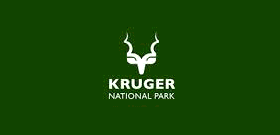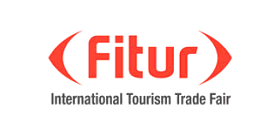Kruger National Park on Alert: Anthrax Scare Prompts Visitor Reassurance Amid Outbreak

South African National Parks (SANParks) has issued a public statement confirming the presence of localized anthrax cases within Kruger National Park, an occurrence that aligns with the park's well-understood natural disease cycle. This announcement is accompanied by a strong reassurance that the risk to guests is extremely low, and the park continues to operate as normal, remaining safe and fully open for visitors to explore its vast wilderness.
Anthrax, a bacterial disease, is endemic to the region and is known to surface sporadically, almost every year. These outbreaks most commonly occur in the far northern sections of Kruger National Park. The current situation primarily involves kudu and buffalo, which is considered a typical pattern for the ecosystem and is not indicative of any wider threat to the park's overall biodiversity. SANParks emphasizes that such outbreaks are anticipated and are managed through established, ongoing conservation and veterinary protocols, demonstrating a proactive approach to wildlife health.
Addressing visitor safety, SANParks has provided clear and precise guidance to ensure peace of mind for both domestic and international guests. A key point of reassurance is that there is no risk of airborne transmission of anthrax for tourists, as the bacterium requires direct contact for infection. Existing park regulations, which mandate visitors to remain inside their vehicles except at designated rest areas, already effectively mitigate this risk. For guests participating in guided activities, additional layers of protection are in place; field guides receive specialized training in disease prevention and are thoroughly prepared to ensure guest safety during all excursions.
Visitors are also reminded of a crucial standard rule in all South African reserves: never to touch or approach animal carcasses. This practice is particularly pertinent during an anthrax outbreak and serves as a simple yet highly effective measure to avoid any potential health concerns. SANParks staff, working in close collaboration with veterinary and agricultural authorities, are actively monitoring the situation. When deemed necessary, carcasses are either removed or safely destroyed to prevent any further spread of the bacterium within the environment.
Outbreaks of this nature are generally self-limiting, and SANParks anticipates a natural decline in cases with the arrival of the first summer rains. The park’s ecosystem is highly adapted to managing such disease cycles, and the robust protocols in place facilitate rapid, coordinated responses that minimize any potential impact on both the wildlife population and visitors. For African tourism professionals, SANParks’ transparent and effective management of the current anthrax cases highlights the critical importance of clear communication and stringent biosecurity measures. This proactive approach not only safeguards the park's precious wildlife and its visitors but also strengthens the confidence of the global tourism market, which increasingly values health and safety assurances when selecting safari destinations.
Importantly, SANParks has reiterated that Kruger National Park remains fully operational, with all its main attractions and activities continuing without any interruption. The organization encourages visitors to continue experiencing one of Africa’s most celebrated wildlife destinations, underscoring the park’s unwavering commitment to guest safety and excellence in conservation. This episode serves as a timely reminder of the dynamic challenges inherent in wildlife management within the broader context of African tourism. For those involved in shaping travel itineraries or advising guests, it underscores the professionalism and preparedness of Africa’s leading parks, offering visitors unique learning experiences about conservation in action. As Kruger National Park navigates this period with secure protocols and transparent communication, it sends a clear message to the travel industry: African safari destinations are capable of responding to natural challenges with agility and expertise, consistently ensuring that guest experiences remain both exceptional and safe. Supported by skilled guides, dedicated veterinary teams, and informed management, Kruger continues to uphold its standard for responsible wildlife tourism in the region.
You may also like...
When Sacred Calendars Align: What a Rare Religious Overlap Can Teach Us

As Lent, Ramadan, and the Lunar calendar converge in February 2026, this short piece explores religious tolerance, commu...
Arsenal Under Fire: Arteta Defiantly Rejects 'Bottlers' Label Amid Title Race Nerves!

Mikel Arteta vehemently denies accusations of Arsenal being "bottlers" following a stumble against Wolves, which handed ...
Sensational Transfer Buzz: Casemiro Linked with Messi or Ronaldo Reunion Post-Man Utd Exit!

The latest transfer window sees major shifts as Manchester United's Casemiro draws interest from Inter Miami and Al Nass...
WBD Deal Heats Up: Netflix Co-CEO Fights for Takeover Amid DOJ Approval Claims!

Netflix co-CEO Ted Sarandos is vigorously advocating for the company's $83 billion acquisition of Warner Bros. Discovery...
KPop Demon Hunters' Stars and Songwriters Celebrate Lunar New Year Success!

Brooks Brothers and Gold House celebrated Lunar New Year with a celebrity-filled dinner in Beverly Hills, featuring rema...
Life-Saving Breakthrough: New US-Backed HIV Injection to Reach Thousands in Zimbabwe

The United States is backing a new twice-yearly HIV prevention injection, lenacapavir (LEN), for 271,000 people in Zimba...
OpenAI's Moral Crossroads: Nearly Tipped Off Police About School Shooter Threat Months Ago
ChatGPT-maker OpenAI disclosed it had identified Jesse Van Rootselaar's account for violent activities last year, prior ...
MTN Nigeria's Market Soars: Stock Hits Record High Post $6.2B Deal

MTN Nigeria's shares surged to a record high following MTN Group's $6.2 billion acquisition of IHS Towers. This strategi...




